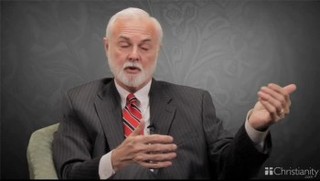- Recent Translations
- All Translations
Mark 1:21-34
Share
Settings
A Man with an Unclean Spirit Healed
22 And they were amazed at his teaching, because he was teaching them like one who had authority, and not like the scribes.Many at Capernaum Are Healed
29 And so then he departed from the synagogue [and][d] came into the house of Simon and Andrew with James and John.Mark 1:21-34 Meaning and Commentary
INTRODUCTION TO MARK
This is the title of the book, the subject of which is the Gospel; a joyful account of the ministry, miracles, actions, and sufferings of Christ: the writer of it was not one of the twelve apostles, but an evangelist; the same with John Mark, or John, whose surname was Mark: John was his Hebrew name, and Mark his Gentile name, Ac 12:12,25, and was Barnabas's sister's son, Col 4:10, his mother's name was Mary, Ac 12:12. The Apostle Peter calls him his son, 1Pe 5:13, if he is the same; and he is thought to have wrote his Gospel from him {a}, and by his order, and which was afterwards examined and approved by him {b} it is said to have been wrote originally in Latin, or in the Roman tongue: so say the Arabic and Persic versions at the beginning of it, and the Syriac version says the same at the end: but of this there is no evidence, any more, nor so much, as of Matthew's writing his Gospel in Hebrew. The old Latin copy of this, is a version from the Greek; it is most likely that it was originally written in Greek, as the rest of the New Testament.
{a} Papias apud Euseb. Hist. l. 3. c. 39. Tertull. adv. Marcion. l. 4. c. 5. {b} Hieron. Catalog. Script. Eccles. p. 91. sect. 18.
Videos for Mark 1:21-34
Footnotes 11
- [a] Some manuscripts have "he went into the synagogue and began to teach"
- [b] Literally "what to us and to you"
- [c] *Here "[after]" is supplied as a component of the participle ("convulsing") which is understood as temporal
- [d] *Here "[and]" is supplied because the previous participle ("departed") has been translated as a finite verb
- [e] *Here "[and]" is supplied because the previous participle ("came") has been translated as a finite verb
- [f] *Here "[by]" is supplied as a component of the participle ("taking hold of") which is understood as means
- [g] Literally "the"; the Greek article is used here as a possessive pronoun
- [h] *Here "[when]" is supplied as a component of the temporal genitive absolute participle ("was")
- [i] The imperfect tense has been translated as ingressive here ("began bringing")
- [j] Literally "who were having badly"
- [k] Literally "who were having badly"



